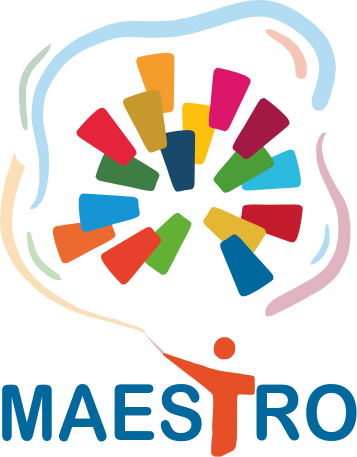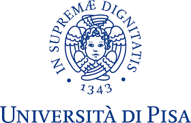MAESTRO
Manufacturing Education for a Sustainable fourth Industrial Revolution
2019-2022
International project co-funded by the Erasmus + Programme of the European Union
Project No 2019-1-SE01-KA203-060572

Project Partners
- Royal Institute of Technology – coordinator, Sweden
- Politecnico di Torino, Italy
- NOVA University Lisbon, Portugal
- Loughborough University, United Kingdom
- University of Ljubljana, Slovenia
- Rzeszow University of Technology, Poland
- University of Pisa, Italy
Countries participating in the Project
![]()
![]()
![]()
![]()
![]()
![]()
Project Motivation
The fourth industrial revolution, or Industry 4.0, is emerging from the introduction of several technological advancements in the way we design and engineer enterprises and their manufacturing and support systems. Mechanization and automation of repetitive jobs, miniaturization of the components and digitalization of processes and services across the firms ICT infrastructure are the main trends shaping the activities of researchers and practitioners.
For the first time technology is not seen simply as a new mean to promote economic growth but also as pivotal element that will enable a greener future. The 2030 Agenda for Sustainable Development, suggested by the UN, promotes the goal towards sustainable industrialization and foster innovation. This includes a specific requirement to harmonize the technological development and the future of environment and society. The industrial landscape will be reshaped by this fast and structural paradigm shift.
Higher education must keep the pace of this process by ensuring that incumbent as well as newly graduated engineers have no gaps or mismatch between their skills and what is required by the labour market.
Project Objectives
The aim of this initiative is to bring together excellences in manufacturing research in order to define and deliver the new competences required by future engineers working in the context of the fourth industrial revolution. In particular:
- New contents and models will be developed with particular emphasis given to the aspect related with a sustainable transition to the digital era.
- New educational units will be formulated in term of independent learning blocks which can be easily integrated in existing mainstream programs in the domain of industrial, mechanical, production and electrical engineering.
Key Actions
The objectives addressed by the present Key Actions:
- Mapping the relevant industrial and research contributions in the domain of the Industry 4.0. The aim is to present all the eligible innovative topics as well as the rationale for including them in undergraduate education. For instance Virtual reality, augmented reality, Additive manufacturing, Autonomous Robot and Human robot cooperation, Sustainable Business Models, Multi Agent based distributed Control, Machine Learning, Big Data.
- Definition of relevant and updated skills and competences in the Industry 4.0 domain with focus on sustainability issues for different engineering profiles. The resulting profiles specifications will be formulated in term of new learning outcomes.
- Development of Constructively Aligned educational units, moving towards a student centred learning process. The courses will include: specifically designed, up to date, learning content-case studies featuring the existing implementation of Industry 4.0 technology in industry; specific reference to the sustainability dimension, a very particular and innovative requirement in the Maestro initiative. The Constructive Alignment gives the necessary common framework for sharing educational objectives among different institutions and different teaching methodologies.
- Validation and implementation of the proposed courses, running a first set of pilot courses which includes the whole spectrum of technologies coming out of Industry 4.0.
- Long term cooperation and synergies among the involved organizations to mutually strengthen each institution.
By its nature these activities can only be carried out in an international environment for two reason. First, the scientific contributions that will be analysed and introduced into higher education are developed by transnational teams and multinational companies across the Union. It is not possible to find all the required competences within a single country. Second, the results must be open and available to all the institution devoted to engineering education. This will promote inclusive education and prevent that some areas of the Union are left behind.
Project Outputs
Mabkhot, M.M.; Ferreira, P.; Maffei, A.; Podržaj, P.; Mądziel, M.; Antonelli, D.; Lanzetta, M.; Barata, J.; Boffa, E.; Finžgar, M.; Paśko Ł.; Minetola P.; Chelli R.; Nikghadam-Hojjati S.; Wang V.; Priarone P.C.; Litwin P.; Stadnicka D.; Lohse N. (2021). Mapping Industry 4.0 Enabling Technologies into United Nations Sustainability Development Goals. Sustainability 2021, 13, 2560. https://doi.org/10.3390/su13052560
Francesco Lupi, Mohammed M. Mabkhot, Miha Finžgar, Paolo Minetola, Dorota Stadnicka, Antonio Maffei, Paweł Litwin, Eleonora Boffa, Pedro Ferreira, Primož Podržaj, Riccardo Chelli, Niels Lohse, Michele Lanzetta,
Toward a Sustainable Industry 4.0 Engineer. Pre-print
Francesco Lupi, Mohammed M. Mabkhot, Miha Finžgar, Paolo Minetola, Dorota Stadnicka, Antonio Maffei, Paweł Litwin, Eleonora Boffa, Pedro Ferreira, Primož Podržaj, Riccardo Chelli, Niels Lohse, Michele Lanzetta (2022), Toward a sustainable educational engineer archetype through Industry 4.0, Computers in Industry, Volume 134,
2022, 103543, https://doi.org/10.1016/j.compind.2021.103543.
- Output 3 - Development of constructively aligned courses in the domain of Industry 4.0
- AR and VR for Assembly
- Decision Support System
- Learning materials PART 1 PART 2
- Time series in machine learning: time series clustering PART 1 PART 2
- Set of data - customers_clustering
- Set of data - non_outlier_accbalance
- Lean Manufacturing
- AM in medical implants
Maffei, A.; Boffa, E.; Lupi, F.; Lanzetta, M. On the Design of Constructively Aligned Educational Unit. Educ. Sci. 2022, 12, 438. https://doi.org/10.3390/educsci12070438
Presentations
Publications related to the project:
-
Francesco Lupi, Mohammed M. Mabkhot, Miha Finžgar, Paolo Minetola, Dorota Stadnicka, Antonio Maffei, Paweł Litwin, Eleonora Boffa, Pedro Ferreira, Primož Podržaj, Riccardo Chelli, Niels Lohse, Michele Lanzetta (2022), Toward a sustainable educational engineer archetype through Industry 4.0, Computers in Industry, Volume 134, 2022, 103543, https://doi.org/10.1016/j.compind.2021.103543.
-
Mabkhot, M.M.; Ferreira, P.; Maffei, A.; Podržaj, P.; Mądziel, M.; Antonelli, D.; Lanzetta, M.; Barata, J.; Boffa, E.; Finžgar, M.; Paśko Ł.; Minetola P.; Chelli R.; Nikghadam-Hojjati S.; Wang V.; Priarone P.C.; Litwin P.; Stadnicka D.; Lohse N. (2021). Mapping Industry 4.0 Enabling Technologies into United Nations Sustainability Development Goals. Sustainability 2021, 13, 2560. https://doi.org/10.3390/su13052560


![]()








